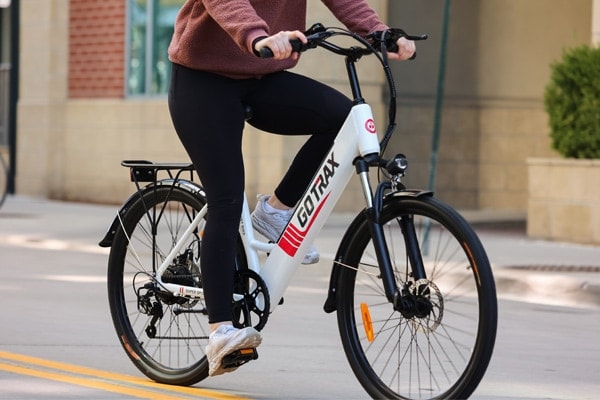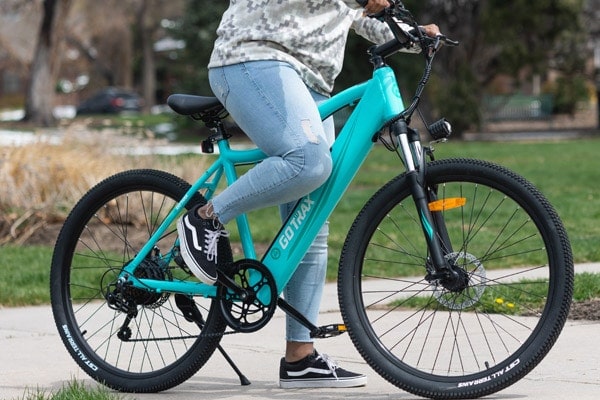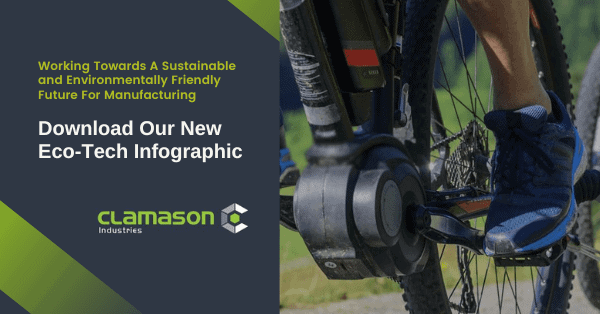In February 2020 it was revealed sales of e-bikes – as they are more commonly known – rose by 116% in the US within 12 months.
No stateside phenomenon, they currently account for 23% of all bike sales in the UK also.
In fact, by 2050 Halfords expect sales to top 1.5m in just 10 UK cities*.
Evidently, this is a burgeoning market, and one innovative and forward-thinking manufacturers are (literally) invested in.
Configuration

So how exactly do e-bikes work?
Well, they are propelled by electric motors that produce torque and powered by lithium-ion battery packs.
While the aforementioned represents the heart of the configuration, e-bikes still require metal frames. These are born from metal stamping and welding. That’s where the likes of Clamason come in.
For frames have a bigger influence than you might think. Their make up has a big say on weight, stability and indeed shock absorption, all key factors in their own right.
While it’s not unusual for carbon fibre to be deployed for e-bike frames, the majority of modern designs encompass metal.
And there are three obvious candidates in this respect.
Steel is durable and relatively cheap to press. Unfortunately, those benefits are outweighed – quite literally – by how heavy a material it is… far from ideal for a vehicle built around electrification and sustainability.
Titanium boasts high corrosion resistance and an admirable strength-to-wight ratio. Its major downside is the fact it doesn’t lend itself to electrical wiring integration. This nearly always results in prices being hiked up.
Which leaves Aluminium, present in around 80-90% of e-bikes in use worldwide.
Lightweight, cost-effective and easy to work with, it’s become the go-to choice for both frames and components, and a material Clamason specialise in when it comes to our own e-bike projects.
Structural Components For E-Bikes
One area in which Clamason have enjoyed great success is in the stamping of structural components intended to lock pedal assembly and motor to the e-bike frame itself.
Indeed, we currently produce around 1.5m million said parts every year, calling upon progression tooling to do so.
The latter uses automation to cut and bend single sheets of metal, in this case aluminium.
The material is fed into a press and aptly ‘progressed’ through the numerous stages of cutting and shaping. Significantly however, this journey is completed using just a single tool.
In keeping with the wider principles of the eco-tech market, progression tooling reduces waste and improves efficiencies.
The bulk of a metal sheet is put to use in some fashion. It could be bent or coined but always utilised.
In this scenario a single set-up allows for multiple operations, cutting production time in the process. Neither tooling nor testing are nearly as painstaking. Depending on your OEM, this is usually reflected in cost.
Progression tooling also brings with it increased flexibility.
Complex parts can be manufactured that bit easier, which is a real advantage given that e-Bikes are sure to evolve as the likes of KIA in particular commit to improving range.
Above all, progression tooling allows for faster turnaround times, without compromising on quality. An ideal balance.
Battery Mounting Solutions
In recent months Clamason has been awarded eight new projects where we have participated in the design and development of battery mounting components. Said components can be found inside the bike frame to assist in the mounting of the battery itself.
Such parts are critical in terms of strength and accuracy, but just as importantly help to minimise weight!
In the aforementioned examples the products are stamped on progression tooling from structural steel and subsequently tapped and painted with a highly corrosion resistant paint. This is essential in what can be very corrosive environments.
Extensive simulations and tooling trials were also vital in bringing these components to the market, as was the team’s extensive experience in this area.
Deburring

Before heading to assembly metal components stamped for e-bikes often require deburring. This is a complimentary service delivered by Clamason, if not all manufacturers.
Cutting burr is unavoidable in machined metal, which is far from ideal when looking to produce an e-bike that truly looks the part. These are intended to be free of imperfections, which necessitates the use of deburring machines that do away with excess material found on key structural components.
Clamason ourselves boast three such machines, which enable us to produce components that are completely burr free, enhancing their safety and efficiency in equal measure.
E-Mobility Market
The e-mobility market – much like the products that define it – is accelerating at pace. As it expands, so it transforms the automotive industry and environment in equal measure.
Stamped metal components are integral to electrification generally, helping to harness a new kind of power.
The likes of progression tooling allow for the high-volume production of parts boasting plenty in the way of strength and performance quality, without ever threatening to tip the scales.
They represent manufacturing of the future. A future Clamason have embraced.
Belfast, Birmingham, Bristol, Leeds, Liverpool, London, Manchester, Newcastle, Nottingham.

